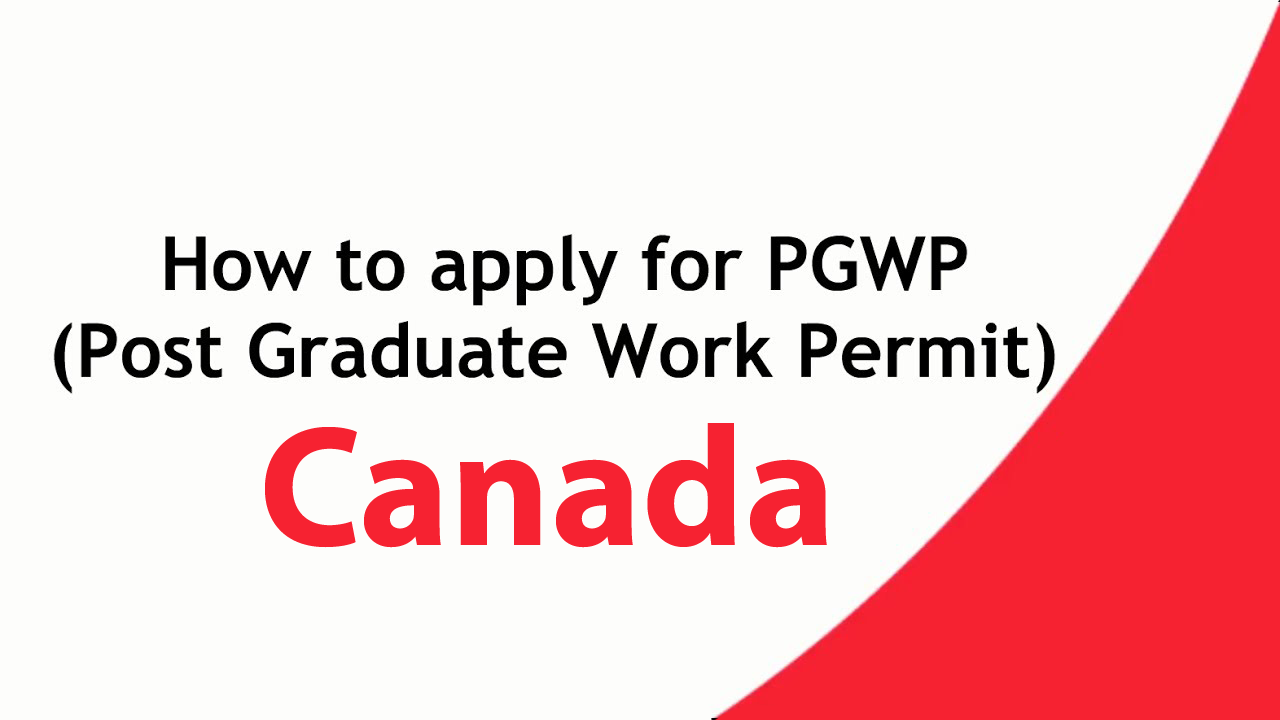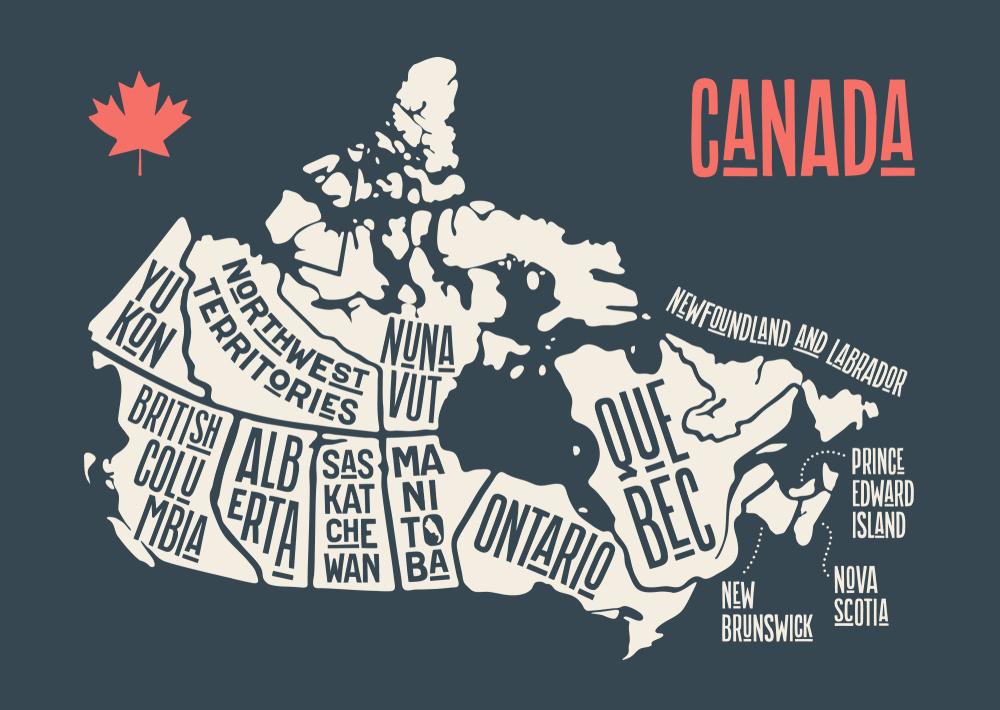Getting a Permanent Residency after studying in Canada Dream for almost every international student in Canada. In fact, in recent times, studying in Canada is seen as an alternative pathway to getting a PR.
Well, it seems quite effective as well. This blog will be perfect hand-book for all international in Canada. Read to know how you get a Permanent Residency after studying in Canada.
How to get a Permanent Residency after studying in Canada 2023
The Prerequisite – Work Part Time!
POV: You’ve got admission to your dream college in Canada.
So, what’s next?
Your top priority must be education. Make sure to follow your academics well. Make friends, visit new places, and most importantly-

Practically all foreign students in Canada engage in part-time employment, which is instrumental in facilitating the management of their living costs and academic expenditures. What’s even more advantageous is that in Canada, you are permitted to work up to 20 hours per week while pursuing your studies, and during academic breaks, you have the flexibility to work full-time.
Did you know working part-time can help you in getting a Canada PR?
Yes! Your part-time work hours are counted as points when you apply for PR under the Express Entry program.
| Hours of work | Full-time hours calculated |
| 15 hours/week for 24 months | 1 year full-time (1,560 hours) |
| 30 hours/week for 12 months at more than 1 job | 1 year full-time (1,560 hours) |
These full-time working hours will be taken into consideration for the Comprehensive Ranking System (CRS) points. To be eligible for the Express Entry program under the Canadian Experience Class (CEC), a minimum of one year of full-time work experience is required when applying.
Apply for a PGWP after Graduation
Canada offers a specialized work permit exclusively for international students after they graduate, known as the Post Graduation Work Permit (PGWP). This permit, abbreviated as PGWP, falls under the category of an Open Work Permit.
Once you graduate, you can apply for a PGWP. The duration of PGWP is usually the same duration as your study permit and can vary from 1 to 3 years.
The work experience you earn during a PGWP will help you earn CRS points.

Pathways to get Permanent Residency after studying in Canada
There are multiple immigration pathways that you can choose to become Permanent Residency after studying in Canada
1.Canadian Experience Class (CEC)
Once you have accumulated at least one year of full-time work experience within a three-year period, you become eligible to apply for Permanent Residency (PR) under the Canadian Experience Class (CEC). The initial step involves creating an Express Entry Profile, followed by submitting your PR application through the CEC stream. After this, you’ll need to wait for an Invitation to Apply (ITA) for Permanent Residency.
2.Federal Skilled Workers Program (FSWP)
The Federal Skilled Worker Program (FSWP) is a part of the Express Entry stream and is designed for skilled workers. This program aims to attract highly skilled professionals to immigrate to Canada. Unlike the Canadian Experience Class, FSWP does not require applicants to have prior work experience.
Based on your profession you must find the best fitting National Occupation Codes (NOC). Under skilled workers’ demand, you will be invited to apply for a PR.
3.Provincial Nominee Program (PNP)
In Canada, each of the provinces and territories has its own immigration programs. These programs allow individuals to select specific provinces based on their interests and the demand for their professions.
Except for 4 provinces/territories (such as Saskatchewan, Prince Edward Island, Manitoba, and Quebec), it is mandatory to create an Express Entry profile to apply through PNPs.
List of all Canadian provinces/territories and the immigration programs:
| Province / Territory | Provincial Nominee Program |
| Ontario | Ontario Immigrant Nominee Program |
| British Columbia | British Columbia Provincial Nominee Program |
| Alberta | Alberta Advantage Immigration Program |
| Manitoba | Manitoba Provincial Nominee Program |
| New Brunswick | New Brunswick Provincial Nominee Program |
| Nova Scotia | Nova Scotia Nominee Program |
| Newfoundland and Labrador | Newfoundland and Labrador Provincial Nominee Program |
| Prince Edward Island | Prince Edward Island Provincial Nominee |
| Yukon | Yukon Nominee Program |
| Northwest Territories | Northwest Territories Nominee Program |

4.Quebec Immigration Program
Quebec operates its independent immigration program, separate from the Express Entry Program. However, it does offer pathways for international students to obtain immigration opportunities.
- Quebec Experience Program (PEQ)
The PEQ allows international students to apply for a PR, six months after graduation. However, you must demonstrate advanced intermediate knowledge of French.
- Quebec Skilled Workers Program (QSW)
QSW is similar to a Federal Skilled Workers Program (FSWP). Unlike, PEQ, you don’t need to demonstrate knowledge of French.
What’s with Canada?
There’s something about Canada that draws students in great numbers to study and eventually settle. With its outstanding quality of life and numerous benefits, almost every student aspires to achieve the Great Canadian Dream of obtaining Permanent Residence.
In this blog, you learned how you can get Permanent Residency after studying in Canada. Choose your best immigration pathway and have a great life in Canada. Happy Canada!
Stick with CanApprove for more insightful blogs and explore your dream of migrating to Canada!
FAQ About Permanent Residency after Studying in Canada
1.Can I work more than 40 hours while waiting for PGWP?
Indeed, after applying for a Post Graduation Work Permit (PGWP), you have the flexibility to work for more than 40 hours per week. However, it’s crucial to ensure that your study permit remains valid, you have successfully completed your program, and that you haven’t exceeded the 20-hour work limit during academic periods.
2.Can I apply for PR while waiting for PGWP?
In case, you have enough work experience earned during your studies (minimum 1 year full-time = 1,560 hours), you may apply for a Permanent Residence.
Alternatively, you may also apply for a Bridging Open Work Permit which allows you to work in Canada. You can work temporarily while you wait to receive your PR
3.Why does a PGWP get rejected?
Your PGWP gets rejected if you
- Have studied in a university/college that is not eligible for PGPW
- Have studied a part-time program
- Have any academic gap
- Have worked more than 20 hours during the academic sessions
Conclusion
Securing Permanent Residency after studying in Canada is a life-changing opportunity. With the right information and guidance, your dream of becoming a permanent resident can become a reality. By following the outlined steps and requirements, you can confidently navigate the process and look forward
